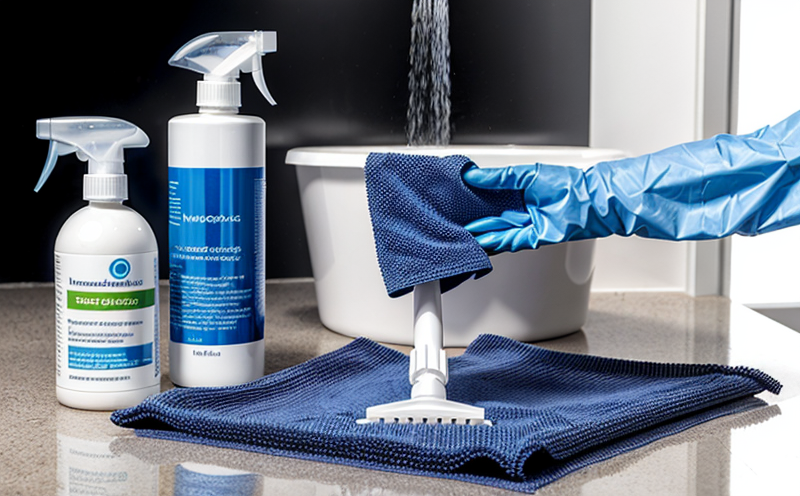ASTM E2315 Time Kill Testing of Cleaning Products with Nanoparticles
The ASTM E2315 standard provides a framework for evaluating the efficacy of antimicrobial cleaning products containing nanoparticles. This testing is crucial in ensuring that nanomaterials incorporated into cleaning and hygiene products effectively kill targeted microorganisms within specified time frames, thereby meeting stringent health and safety standards.
Time-kill studies are performed by exposing test samples to various concentrations of the product under controlled conditions. The specimens used include a range of common bacteria, fungi, and viruses known for their resistance or susceptibility to nanomaterials. These tests simulate real-world usage scenarios to provide accurate data on the performance of the cleaning agents.
Specimen preparation involves creating standardized samples that mimic the expected application conditions in hygiene products. This includes preparing solutions at different concentrations and ensuring they are consistent with industry standards. The testing apparatus used is designed specifically for this purpose, providing precise measurement capabilities necessary to detect even subtle changes in microbial populations over time.
Instrumentation plays a critical role in ASTM E2315 compliance by measuring the number of viable microorganisms present before and after exposure to the cleaning product. Automated systems can continuously monitor the reduction rate throughout the test duration, generating detailed reports that highlight any variations or inconsistencies. Reporting must adhere strictly to ASTM guidelines, including specifying the type of nanomaterials used, their concentration levels, and how these relate to observed efficacy.
The results from these tests are essential for both regulatory compliance and product development purposes. They help manufacturers ensure their products meet required performance standards while also providing valuable insights into potential improvements or adjustments needed in formulation design. Additionally, such data supports the marketing efforts by demonstrating the effectiveness of new innovations like nanotechnology.
- Time-kill studies are conducted to assess whether nanoparticles effectively eliminate microorganisms within prescribed timelines.
- Specimen preparation involves creating consistent solutions for accurate testing.
Frequently Asked Questions
Quality and Reliability Assurance
Ensuring the reliability of ASTM E2315 time kill testing is paramount for maintaining high standards in nanotechnology applications within cleaning products. Quality assurance measures encompass rigorous validation processes that verify both laboratory procedures and equipment calibration against established criteria.
- Laboratory procedures undergo regular audits to ensure adherence to ASTM E2315 specifications.
- Equipment is calibrated using certified reference materials periodically.
Customer Impact and Satisfaction
The successful implementation of ASTM E2315 time kill testing has a direct positive impact on customer satisfaction. By providing robust evidence of microbial reduction efficacy, customers gain confidence in the safety and effectiveness of their cleaning products.
International Acceptance and Recognition
The ASTM E2315 standard enjoys widespread acceptance globally due to its rigorous methodology and alignment with international standards. This recognition enhances product trustworthiness and facilitates easier market entry into various countries.





